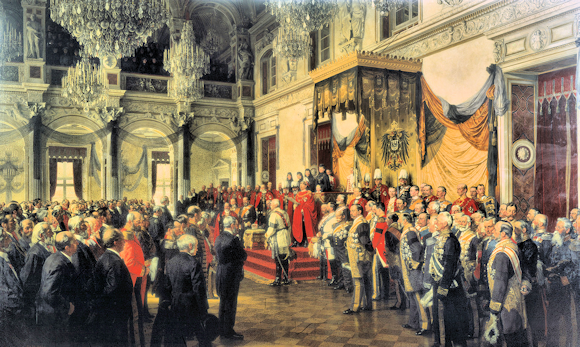 |
| Cap Badge for the Francophone 22nd Battalion CEF |
By James Patton
There are different estimates of the number of French-Canadians who volunteered to serve in the Canadian Expeditionary Force (CEF) during the Great War. One widely accepted tally is around 15,000 volunteers, mostly from the Montréal area, though Québec City, Western Québec and Eastern Ontario also provided significant numbers, too. It seems certain that some French-Canadians living in the U.S.A. returned to enlist and they would have been counted as American recruits, a part of a large contingent that is officially recorded as 35,612, although alternative estimates run as high as 50,000.
How many were French-speaking (Francophones) is impossible to know since the attestation papers did not ask for that information. Though French-Canadians comprised nearly 30 percent of the nation’s population, they made up only about 4 percent of Canadian volunteers. Less than 5 percent of Québec’s males of military age were enrolled in infantry battalions, compared to about 15 percent in the rest of the country. To further confuse, about half of the Québec recruits were English-speakers (Anglophones), and nearly half of the Francophone volunteers came from provinces other than Québec.
 |
| This Canadian recruitment poster in French calls for men to enlist in French-Canadian regiments, as “It’s time to act.” |
It seems clear that many French-Canadians weren’t motivated to fight. The reasons are many and somewhat complex, but here is a list:
- Francophones had a tradition of suspicion toward the British, and France had shown scant interest in their welfare after the 1760 treaty. Therefore, they felt little loyalty or obligation to either "home country."
- Recruiting campaigns consisted largely of flag-waving "King and Country" appeals, effective with Anglophones but likely not with Francophones. Many Anglophones were first or second generation in the country (one source says 48.5% of the CEF), while all of the Francophones were at least fifth generation.
- Many French-Canadians, led by figures like Henri Bourassa (1868–1932), emphasized loyalty to Québec. They felt that their fidelity was to the land of their birth, and they should instead continue to concentrate on achieving independence for Québec .
- Francphones had been alienated by government actions, e.g. the Canadian Department of Militia and Defence’s policy of strict unilingualism, and the Ontario Provincial government’s 1912 ban on French language in the schools.
- Other influences included these: Religious—there was a theory that circulated that the war was a punishment of France for adopting "godless" secularism. Economic—the war brought welcomed prosperity to Québec, with many well-paying jobs available, especially in the war industries. Emigration- the French-Canadian diaspora to New England was still going at this time (about 900,000 left Québec between 1840 and 1930).
However, the tipping point was conscription, imposed by Prime Minister Sir Robert Borden GCMG PC KC (1854–1937) in August 1917, partly a result of public belief that the French-Canadians were "shirking" their duty. French Canada resisted; there were widespread protests and even riots in Québec City, which led to martial law, enforced by 6,000 armed Anglophone conscripts.
As can be seen in the table that follows, there were 15 Francophone militia regiments in 1914 . Coincidentally, there were also, over the course of the war, 15 Francophone battalions in the CEF, out of a total of 260. Sir Sam Hughes KCB PC VD (1853–1921), the Minister of Militia and Defence (until 9 November 1916), did not like Francophones, and didn’t allow any Francophone units in the First CEF contingent. Nearly 1,000 Francophones had volunteered in 1914, but they were assigned to Anglophone battalions.
Francophone Battalions of the CEF 1915–1919, Militia Recruitment Source and Present-Day Affiliation
Click on Table to Enlarge
 |
| Total for All Units: 8,868 |
For the Second CEF contingent, a wealthy Québecois named Arthur Migneault MD (1865–1937), a purveyor of highly popular iron pills, circumvented Hughes’s obstinancy by going straight to Borden and offering to pay CD$ 50,000 (equivalent to CD$1.4 million if paid today) to cover the cost of forming, manning and equipping ONE exclusively Francophone battalion for the CEF. Borden had no grounds to refuse, and so the 22nd Battalion CEF came to be, commonly known outside of Québec as the “Van Doos,” an Anglicized version of vingt-deux.
Although Dr. Migneault supported the recruitment of two more Francophone CEF battalions, the 41st and 57th, neither of these was ever deemed combat ready, partly due to a lack of Francophone officers. As the table above shows, save for the 22nd all of the Francophone battalions were eventually used to backfill operational losses.
Although the total Francophone participation in the CEF is estimated to be about 35,000, it would be down to the new 22nd to carry the colors alone. You can learn how they did tomorrow.
Sources include The Canadian War Museum, the Government of Canada and Badges of the CEF, by Lenard Babin and John Snitzel.







































